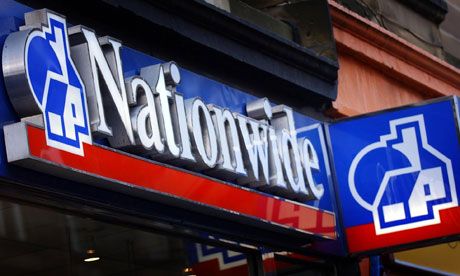
Nationwide building society has launched its first current account in 25 years in an attempt to lure more people away from high street banks. But is it any good and should you bother switching to it?
Flex Direct is an online version of the building society's popular FlexAccount, albeit with several key differences, and is aimed at those who can pay in a decent salary each month and who never dip into their overdraft.
Unusually for a current account it pays credit interest: 2% for the first year on balances up to £2,500 and 1% thereafter. You will need to pay in a minimum of £1,000 each month; fail to do so and you will be hit with a £5 charge and have your interest for that month stopped. The overdraft charges can also be onerous: £1 a day for an arranged overdraft capped at £20 a month; or £5 a day capped at £60 a month for unauthorised borrowing.
Once the account has been opened you can operate it online or via telephone banking, but not in-branch.
While it is commendable that Nationwide is paying interest at a time when this is hard to come by, the sum on offer does not really amount to much. According to Hagger a basic rate taxpayer keeping the full £2,500 in the account will earn £40 in year one and £20 a year in subsequent years. Interest is not payable on balances in excess of £2,500.
Sylvia Waycot of Moneyfacts.co.uk says: "A word of warning: the headline rate of 2% only lasts for the first 12 months, after which it is only 1% – and of course most people will not realise it has changed because they will just remember the initial 2% like they do with bonus savings accounts."
There are also accounts that pay better than Nationwide's, including the Halifax Reward account which pays £5 for each month you deposit £1,000.
Nationwide's overdraft structure echoes that of a number of other banks who have abolished a percentage charge for overdrafts and replaced it with a fee per day. Halifax, for example, charges £1 a day for overdrafts up to £2,000 on its Reward Current Account, and £2-£3 a day over this depending on the size of the overdraft. Santander charges £1 a day for authorised borrowing and £5 a day for unauthorised borrowing on its 123 account.
"For those with relatively small overdrafts, the £1 a day structure may be easier to understand, but it's also far more expensive," says Andrew Hagger of MoneyComms.co.uk. "Charging £1 for a one-day overdrawn balance is the equivalent of an interest rate of 73% if you are £500 overdrawn. If you're £1,000 in the red a £1 daily charge is the equivalent of 36.5%."
What is worth considering about Flex Direct is the other Nationwide products the account gives you access to. For example, you are able to take out a flexible five-year tracker mortgage at 3.39% for new borrowers and 3.29% for existing borrowers, or you can get a four-year fixed rate at 2.89% for new borrowers or 2.79% for existing borrowers. A £99 non-refundable booking fee is payable up front for both mortgages and both are for loan-to-values of up to 70%.
Flex Direct customers can also get access to a personal loan rate of 6.3% for loans of between £7,500 and £15,000 for up to five years – this compares to 6.8% on a best-buy loan.
Waycot is impressed by these exclusive deals. "We like the preferential rates on loans and mortgages that the account offers," she says. "This is becoming increasingly popular – Santander and Halifax do likewise. However, Nationwide is often at the top of the personal loan tables so getting an even better deal will be good news to many."
The building society's existing Flex Account customers may be loathe to switch as the new account does not offer the free European travel insurance they currently get. However, Hagger speculates that such account holders may find their accounts come to more closely resemble Flex Direct in the future.
"I can't help but feel that the new overdraft tariff may in time take the place of the interest-charging model on the original Flex Account," he says. "Taking all the factors into consideration I'm not particularly excited by this new account and would give it a miss."







